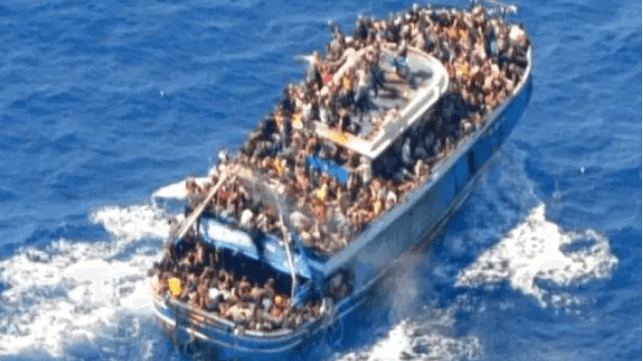EU Ombudsman Investigating EU Border Agency’s Handling of Migrant Crisis

The European Ombudsman announced that it will be conducting an investigation into the migrant boat tragedy off Greece in late June that claimed the lives of at least 500 people, sparking widespread criticism of how the ongoing migrant crisis in the Mediterranean is being handled. The Ombudsman, which is an independent and impartial body that holds the EU’s institutions and agencies to account and seeks to promote good administration, is specifically focusing on the role of the European Border and Coast Guard Agency (Frontex) and its maritime coordination efforts as they relate to the migrant boats.
Emily O’Reilly, the EU Ombudsman, reports she will be looking at a wind range of documents concerning Frontex’s responsibility to rescue those in distress at sea. She plans to look both at the formal report about how events unfolded with the specific migrant boat off Greece as well as reports of the other recent incidents involving considerable loss of life in the Mediterranean.
“A tragedy of this magnitude requires all those involved to reflect on their responsibilities and to be clear to the public who is accountable for these deaths,” said O’Reilly. “My office will focus on the role of Frontex as we try to piece together the events that led to the capsizing of the boat and the deaths of at least 500 people.”
The Ombudsman’s joined other investigations already underway. She notes that her office will be coordinating with the Greek Ombudsman Andreas Pottakis who has the power to look into how the Greek authorities’ response to the migrant boat. In addition, there have been broad calls within the European Union for an independent investigation into the loss of the overloaded fishing boat. This comes as advocates for the families and survivors call for more to be done and the NGO community continues to call for the European Union to enact a broader program to address the migrant crisis.
The fishing boat was reported to be loaded with as many as 750 people attempting to make the passage from Libya to Italy. Greek authorities confirmed that they had been tracking the vessel after it was reported to be in the area but insisted, they were monitoring. They said they offered assistance but denied the accusations of survivors that the Hellenic Coast Guard was attempting to tow the vessel when it capsized. Just over 100 people survived with critics saying more could have been done to render assistance.
“While the Greek authorities' role is being investigated at the national level, Frontex’s role in search and rescue operation also needs to be clarified,” said O’Reilly. “It has been reported that in this instance Frontex alerted the Greek authorities to the ship’s presence and offered assistance, but it is not clear what else it could or should have done.”
In her letter to the executive director of Frontex, O’Reilly says she has been closely monitoring the detailed reports saying she believes greater clarity is required in relation to Frontex’s role and its broader efforts at providing technical and operational assistance. She asks questions such as how Frontex ensures its duty to rescue those in distress at sea as well as the agency’s role in coordination. She is also asking about specific operational issues such as the use of cameras on boats in the operation.
Looking at the broader handling of migrants at sea in the Mediterranean, the Ombudsman asks Frontex about the reports concerning individuals’ delayed response or refused disembarkation at EU ports during SAR operations. She is also seeking information about Frontex’s protocol on its communications with NGOs that operate in support of SAR operations and reports situations where captains of NGO vessels are required to hand over rescued individuals to the coast guards of non-EU countries.
As part of the investigation, they will also explore the recent EU deal with Tunisia on border management. The focus will be on how the human rights impact. She plans to look at how Frontex ensures compliance with fundamental rights and what it does when it becomes aware of breaches by member state authorities.
No comments:
Post a Comment